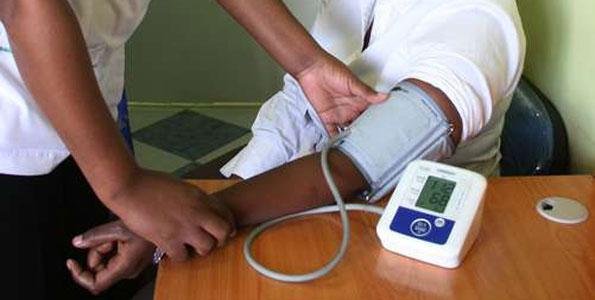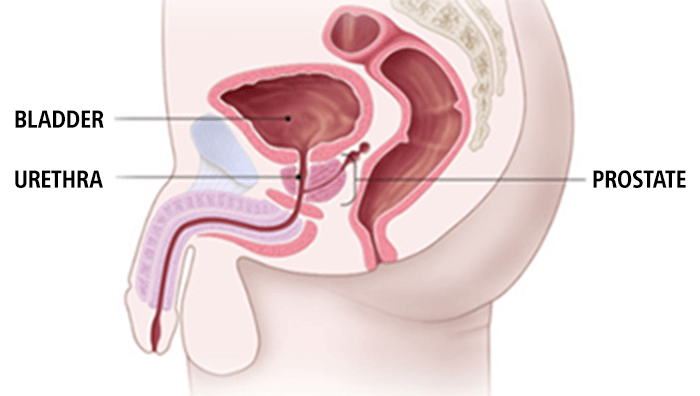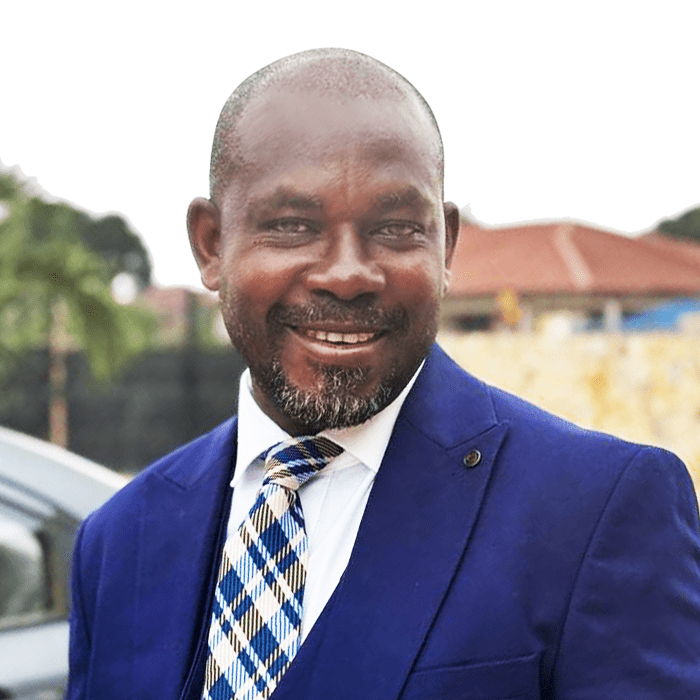Health Essentials
World Hypertension Day; …Measure your blood pressure accurately, control it, live longer
Smoking damages the blood vessels
Hypertension, commonly known as high blood pressure, is a medical condition that affects people of all ages around the world.
It is often referred to as the “silent killer” because it can go unnoticed for years, quietly damaging your health and increasing the risk of serious complications.
However, with proper awareness, accurate measurement of blood pressure, and effective control, you can lead a healthier and longer life.

What is Hypertension?
Blood pressure is the force exerted by blood against the walls of your arteries as your heart pumps it around your body. Hypertension occurs when this pressure remains consistently high over time. It is usually categorised into two types: primary (essential) and secondary hypertension.
Primary hypertension is the most common type, accounting for about 90 percent of cases, and its exact cause is often unknown. On the other hand, secondary hypertension is caused by an underlying health condition, such as kidney disease, hormonal disorders, certain deficiencies and some medications.
Why is accurate measurement important?
Accurately measuring your blood pressure is crucial for both diagnosis and management of hypertension. Many factors can influence blood pressure readings, such as stress, physical activity, and even the way the measurement is taken.
By ensuring accuracy, healthcare professionals can make informed decisions about your treatment plan, and you can monitor your progress more effectively.
Tips for Accurate Blood Pressure Measurement:
1. Use a dependable blood pressure monitor: Invest in a high-quality, validated blood pressure monitor for home use. Automatic digital monitors are widely available and provide accurate readings when used correctly.
2. Follow the instructions: Read and follow the instructions provided with your blood pressure monitor carefully. Improper use can lead to inaccurate readings.
3. Choose the right cuff size: Use the appropriate cuff size for your arm. A cuff that is too small or too large can affect the accuracy of the measurement.
4. Rest before measurement: Sit quietly and relax for at least five minutes before taking your blood pressure.
5. Avoid caffeine, smoking, and exercise for at least 30 minutes beforehand.
Position yourself correctly: Sit upright with your back supported, feet flat on the floor, and arm resting on a table at heart level. Ensure the cuff is at the same level as your heart. Do remember you may also take your BP while standing or lying down but ensure you compare readings in same position only.
6. Take multiple readings: Measure your blood pressure at least twice, with a brief break in-between. Record the average of the readings for a more reliable result.
7. Avoid tight clothing while taking blood pressure readings e.g. tight necktie or other undergarments.
Controlling Hypertension for a Longer Life:
Healthy lifestyle choices: Adopting a healthy lifestyle is crucial in managing hypertension. Maintain a balanced nutrition rich in fruits, vegetables, whole grains, and lean proteins.
Reduce your salt intake and limit processed and fatty foods. Engage in regular physical activity, such as brisk walking, swimming, or cycling, for at least 150 minutes per week. The appropriate strength training at least twice a week is also highly recommended.
Maintain a healthy weight: Achieving and maintaining a healthy weight is vital for blood pressure control. Losing excess weight, if necessary, can significantly reduce blood pressure levels.
Reduce stress: Chronic stress can contribute to high blood pressure. Find healthy ways to manage stress, such as practising relaxation techniques, engaging in hobbies, or seeking support from friends and family.
Limit alcohol consumption: Excessive alcohol intake can raise blood pressure. If you drink, do so in moderation. Men should limit alcohol to two drinks per day, and women to one drink per day.
Quit smoking: Smoking damages blood vessels and increases the risk of heart disease. If you smoke, seek help to quit.
Your healthcare provider can guide you through smoking cessation programmes or recommend appropriate resources.
Regular medical check-ups: Regularly visit your healthcare provider to monitor your blood pressure and overall health. They can adjust your treatment plan, if needed.
Finally spread the message about High Blood Pressure and you will be saving many lives; Be a LIFE SAVER from today!!
AS ALWAYS LAUGH OFTEN, ENSURE HYGIENE, WALK AND PRAY EVERYDAY AND REMEMBER IT’S A PRICELESS GIFT TO KNOW YOUR NUMBERS (blood sugar, blood pressure, blood cholesterol, BMI)
Dr. Kojo Cobba Essel
Health Essentials Ltd/ Mobissel
(dressel@healthessentialsgh.com)
*Dr. Essel is a medical doctor with a keen interest in Lifestyle Medicine, He holds an MBA and is ISSA certified in exercise therapy, fitness nutrition and corrective exercise. He is the author of the award-winning book, ‘Unravelling The Essentials of Health & Wealth.’
Thought for the week – “17th May is World Hypertension Day, a perfect day to remind ourselves of the dangers of High Blood Pressure and the lifestyle changes we can adopt to control our blood pressure. It all starts with MEASURING YOUR BLOOD PRESSURE ACCURATELY.
By Dr. Kojo Cobba Essel
Health Essentials
The Prostate Has Found Its Voice

The prostate gland, a small but essential organ found only in men, plays a key role in reproductive health. It produces fluid that nourishes, protects, and transports sperm, yet many focus only on its connection to prostate cancer.
Location & Function
- Situated between the bladder and penis, with the rectum behind it.
- The urethra passes through the prostate, carrying urine and semen.
Common Prostate Conditions
1. Prostatitis – Infection of the prostate:
- Symptoms: chills, fever, pus-like urethral discharge, painful urination, groin/testicular pain, painful orgasms, erectile dysfunction.
- Advice: Seek professional help; do not self-medicate.
2. Benign Prostatic Hyperplasia (BPH) – Non-cancerous enlargement of the prostate:
- Symptoms: frequent urination (especially at night), urge incontinence, difficulty starting urination, weak stream, painful urination, blood in urine, terminal dribbling, and in severe cases, inability to urinate.
- BPH can be extremely painful, sometimes compared to labor pains.
3. Prostate Cancer – Common among men, especially black men, often aggressive and with earlier onset:
- Risk Factors: older age, African descent, family history, obesity.
- Symptoms: frequent urination, straining, blood in urine/semen, weak urine flow, new erectile dysfunction; advanced stages may include fatigue, weight loss, and bone pain.
Diagnosis
- Digital rectal examination – checks for irregular or hard areas.
- PSA test, biopsy, ultrasound, CT/MRI/PET scans, bone scan.
Management
- Holistic approaches include watchful waiting, medication, surgery, and radiation (external & brachytherapy).
- Always discuss all options with your healthcare provider.
Risk Reduction Tips
- Regular screening
- Healthy, varied diet rich in fruits and vegetables (carrots, tomatoes, broccoli, kale, cauliflower)
- Maintain a healthy weight
- Exercise at least 5 days a week
Final Advice
- Share this information – the prostate needs support!
- Maintain good hygiene, walk and exercise daily, pray, and know your numbers (blood sugar, blood pressure, cholesterol, BMI).
Thought for the Week:
“There is no magic formula to being happy but making a conscious effort to be happy goes a long way.” – Dr. Kojo Cobba Essel
Dr. Essel invites readers to the La Palm Royal Beach Hotel Wellness Festival on Saturday, November 29, 2025, at 6 a.m., to walk, exercise, network, and share ideas to stay healthy.
Contact: dressel@healthessentialsgh.com
By Dr. Kojo Cobba Essel
Join our WhatsApp Channel now!
https://whatsapp.com/channel/0029VbBElzjInlqHhl1aTU27
Health Essentials
Stop the silent killer: Breaking myths to prevent sudden deaths from high blood pressure

Every week in Ghana, a life is cut short, sometimes in the middle of traffic, sometimes at a desk, sometimes in the quiet of sleep. A father doesn’t come home. A sister doesn’t wake up.
A colleague slumps at work and never gets back up. Families are left asking why and you will hear statements like what happened? Was he sick? I just saw him, he has not shown signs of ailment, what a shock and so on.
Behind many of these sudden tragedies is a quiet, invisible force: high blood pressure, or hypertension. It doesn’t scream for attention. It doesn’t always show symptoms. But it tightens its grip silently on hearts, on brains, on lives.
This is not just a medical issue. It is a human one, it is about behaviour, it is about ignorance and it is about lifestyle. It is the grandmother who never got her blood pressure checked because she felt “fine.”
It is the taxi driver, the statistician, the nurse who ignored his pounding headaches, thinking it was just stress. It is the young lady who was so vibrant at church and no one suspected she could fall and die. Because it shows no symptoms.
The alarming numbers we cannot ignore
The Ghana’s 2023 STEPS Survey on Non-Communicable Diseases conducted by The World Health Organisation, Ghana Health Service and Ghana Statistical Service has revealed findings that should push for action.
According to the report, 21.7 per cent of adults aged 18 to 69 in Ghana are living with high blood pressure. Even more alarming is that 51.1 per cent of those with hypertension are not aware of their condition.
This means that more than half of the people with dangerously high blood pressure are walking around without knowing it until tragedy strikes. That is the real danger of this silent killer.
Literature has shown that hypertension is preventable and manageable. But only if we treat it like the threat, it is. That means regular checkups; that means understanding the risks and that means talking about it openly, urgently, and with compassion.
The deadly power of myths
Why are so many Ghanaians untested or untreated? Is it out of ignorance, or the pervasive myths about hypertension and its treatment?
• Some believe blood pressure medicine “weakens the body” or “shortens life.”
• Some believe blood pressure medicine “weakens the penis and kills sexual drive”
• Others think once you start taking medication, you are “dependent for life.”
• Many say, “I feel fine, so I must be fine.”
These beliefs are not only false, but they are also deadly. The truth, according to the World Health Organisation, is that effective treatment can reduce the risk of stroke by up to 40 per cent and heart attack by 25 per cent. Avoiding treatment does not prevent dependence rather, it accelerates death.
As Dr Patrick Kuma-Aboagye, former Director-General of the Ghana Health Service, has noted, “Hypertension is preventable and treatable, but our biggest battle is misinformation and late detection.”
A national conversation we must have
This is not just a health issue it is a national emergency. Sudden deaths rob families of breadwinners, communities of leaders, and the country of its productivity. In every obituary notice caused by hypertension, there is a story of loss that could have been prevented with a simple blood pressure check and treatment.
Behind every life saved is a moment of awareness, a decision to act, therefore, the media must rise to the challenge.
Radio and television programmes should dedicate regular airtime to demystify hypertension. Newspapers should carry survivor stories, expert interviews, and practical lifestyle advice.
Social media influencers should spread awareness in local languages, reaching young people who assume they are safe.
Public health experts also have a responsibility. Screening must move beyond hospitals into churches, mosques, markets, schools, and workplaces. People should not have to wait for illness to know their BP status.
What we can do together
To stop the silent killer, we need a collective response:
• Check your blood pressure regularly, even if you feel healthy.
• Follow medical advice faithfully if diagnosed because treatment saves lives.
• For healthy lifestyle, eat less salt, reduce alcohol, reduce starchy, fat and oil intake, avoid smoking, and exercise at least 30 minutes daily.
• Encourage one another talk about blood pressure in families, communities, and workplaces.
Conclusion: Silence is killing us
What kills is not just the disease, but the silence, fear, and myths that surround it. The STEPS 2023 report has sounded the alarm: nearly one in five Ghanaian adults has high blood pressure, and more than half don’t even know it.
This is the time for bold conversation, public education, and decisive action. The media, health professionals, policymakers, and ordinary citizens must join forces to expose the myths, spread the facts, and save lives. Let us not wait for another headline.
Let us make blood pressure a national conversation before it becomes a personal tragedy. With awareness, treatment, and collective will, Ghana can stop the silence and stop the sudden deaths from the silent killer.
Written by: Ansah Moses Teye-Akam – Senior Statistician, Sociologist/Scientific Research Organisational Expert.
Email: moses.ansah@ statsghana.gov.gh/ansahmosesteyeakam@ gmail.com.gh Contact: 0244539034 / 0204359034
Join our WhatsApp Channel now!
https://whatsapp.com/channel/0029VbBElzjInlqHhl1aTU27






